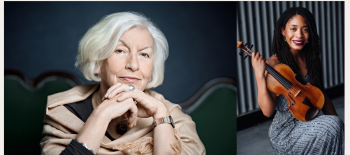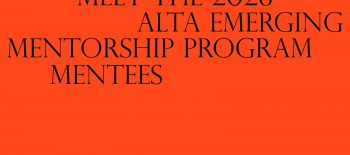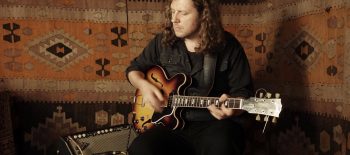Polish Poetry Unites is a video series for anyone interested in literature, history and reading. In each episode Edward Hirsch, a distinguished American poet, and the president of the Guggenheim Memorial Foundation, will introduce a celebrated Polish poet to American audiences.
This episode of Polish Poetry Unites introduces the work of Ewa Lipska to American audiences. Ewa Lipska was born in 1945 in Kraków and now shares her time between Viena, Austria and Kraków, Poland. Her poems were translated to many languages worldwide.
Her poetry collection, “Dear Mrs. Schubert” was published by the Princeton Press in the USA and was introduced by Adam Zagajewski, another great Kraków’s poet.
Following the exploration of Lipska’s poetry by Edward Hirsch (more below) the video showcases the story of Helena Konopka, a 14-year-old student at a Warsaw school who loves Lipska’s poetry and especially one poem: “The Children’s Home.” (below) The poem was translated from the Polish by Barbara Plebanek and Tony Howard and published by Wydawnictwo Literackie in “White Strawberries” book (2000).
In the video Edward Hirsch says: “Ewa Lipska is one of the finest living poets in Poland. She’s translated all over Europe. (…) She’s part of the generation of new wave poets, though really, she’s always stood apart from them.
She’s never written about politics directly, although politics is part of her subject, but she’s more skeptical of politics than either protesters or authoritarians. She writes at an angle; I think writing under Soviet bureaucracy helped teach her to hone her wit and write at a sharp cross angle at things.
She reminds me most of Wisława Szymborska, who was her friend. I met both in Krakow when I interviewed Szymborska, I met Ewa Lipska through my friend Adam Zagajewski, who was part of the same generation as her, and I really admire her cutting wit and sharp intelligence.
Both Szymborska and Lipska you could say are revolting against a certain traditional idea of women’s poetry, the idea that women should be writing about love, or their work should be soft and feminine. On the contrary Lipska is very sharp witted, sort of a bit elbowing I’d say.
The book I love the most of hers, translated into English is “Dear Mrs. Schubert,” which is sort of postcard poems, very cutting about a European everywoman. And they’re very brief, terse, intelligent, funny, witty and erotic.
The poem that I love most of Lipska’s is the poem which is featured in the film, “Children’s Home”. What I love most about it is that this poem was found in a textbook by a 14-year-old girl, who made it her own.
And the girl, Helena is so wonderful she– she wants to be a psychologist, not just of people but of animals too um and she wants to adopt a child because of her sympathy. And Lipska’s poem is something that she reads but almost as if something she could have written herself if she could write this kind of poetry. So, this to me shows precisely what the power of poetry is and what it can do.”
Children’s Home
By Ewa Lipska
Thirty pairs of felt slippers,
With tulip blossom appliqued on the toe.
Thirty little smocks blotted with blackcurrant juice.
Thirty motionless cats embroidered with a chain stitch.
Thirty pairs of little hands reaching up
but only of porridge spoons
Thirty pairs of eyes
opening wide in sleep
to catch a glimpse of parents
on the candy hills.
“If my mummy wanted to
she could be a queen.
But she had to die.
Because daddy turned into a wolf”
“My mummy was thin so she couldn’t love me.
but soon as she gets un-thin
she’ll buy me forever”.
“My Mummy is beautiful”.
My daddy is strong.
My mummy is rich.
She could buy North America and gold.
And daddy can shoot a real gun.
Thirty pairs of little legs
Stands at the disused railway points
awaiting the approach of a home.
Translated from the Polish by Barbara Plebanek and Tony Howard (Wydawnictwo Literackie, 2000)
Dom Dziecka
Ewa Lipska
Trzydzieści par pantofelków filcowych
z wyszytym na środku kwiatem tulipanu.
Trzydzieści fartuszków poplamionych sokiem
z czarnej porzeczki. Trzydzieści nieruchomych kotów
wyhaftowanych ściegiem płaskim.
Trzydzieści par wyciągniętych rączek
ale tylko po łyżki do zupy mlecznej.
Trzydzieści par oczu otwieranych we śnie
aby dojrzeć rodziców na wzgórzach cukierków.
Gdyby moja mamusia chciała
mogłaby być królową.
Ale musiała umrzeć
bo tatuś zamienił się w wilka.
Moja mamusia była chuda
i dlatego nie mogła mnie kochać.
Ale jak tylko będzie chuda mniej
to mnie kupi na zawsze.
Moja mamusia jest piękna. Mój tatuś jest piękny.
Moja mamusia jest bogata. Mogłaby kupić
Amerykę Północną i złoto. A tatuś
potrafi strzelać z prawdziwego karabinu.
Trzydzieści par nóżek
stoi przed nieczynną zwrotnicą
i oczekuje na wjazd
domu.
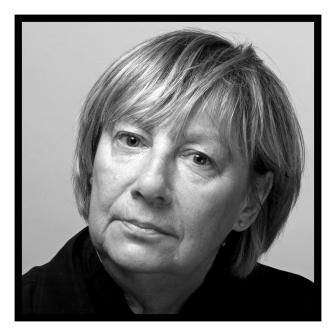
EWA LIPSKA is a Polish poet from the generation of the Polish “New Wave.” She was born in Cracow in 1945. Her poems often take place in a surrealistic dream space. Imagination seems to represent the only hope for the protagonists of her poems to gain their freedom and to escape from a real world that is full, above all, of danger. Collections of her verse have been translated into English, Czech, Danish, Dutch, German, and Hungarian. She lives in Vienna and Cracow. (Source: The Continental Literary Magazine)
MORE about Ewa Lipska (selection):
Culture.pl: https://culture.pl/en/artist/ewa-lipska
Poetry International: https://www.poetryinternational.com/en/poets-poems/poets/poet/102-423_Lipska
Words Without Borders: https://wordswithoutborders.org/contributors/view/ewa-lipska/
https://yalereview.org/article/ewa-lipska-fingerprint-scanner
https://muse.jhu.edu/article/485840
https://iwp.uiowa.edu/91st/vol5-num1/poems
https://instytutksiazki.pl/en/polish-literature,8,authors-index,26,ewa-lipska,118.html?filter=L
The video about Ewa Lipska from the POLISH POETRY UNITES video series was realized with additional support from: New York Women in Film & Television
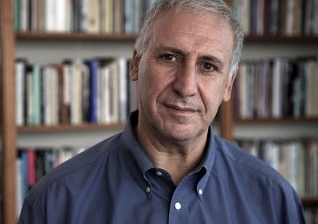
Edward Hirsch is an American poet and critic who wrote a national bestseller about reading poetry entitled How to Read A Poem And Fall In Love With Poetry published in 2014. He has published nine books of poems, including The Living Fire: New and Selected Poems (2010) and Gabriel: A Poem (2014), a book-length elegy for his son that The New Yorker called “a masterpiece of sorrow.” He has also published five prose books about poetry. His latest book of essays, 100 Poems to Break your Heart was published in 2021. He is president of the Guggenheim Memorial Foundation in New York City. Currently he is finishing a book of essays called The Heart of American Poetry. It will be published in April to mark the fortieth anniversary of the Library of America. The book consists of deeply personal readings of forty essential American poems. It rethinks the American tradition in poetry. Ed Hirsch lives in New York City.
Lead image: Ewa Lipska by Tineke de Lange
Moderator: Edward Hirsch
Writer and Director: Ewa Zadrzyńska
Cinematography: Jacek Mierosławski and Mila Antoniszczak
Editor: Anna Jędrzejewska
Curator and Executive Producer: Bartek Remisko


